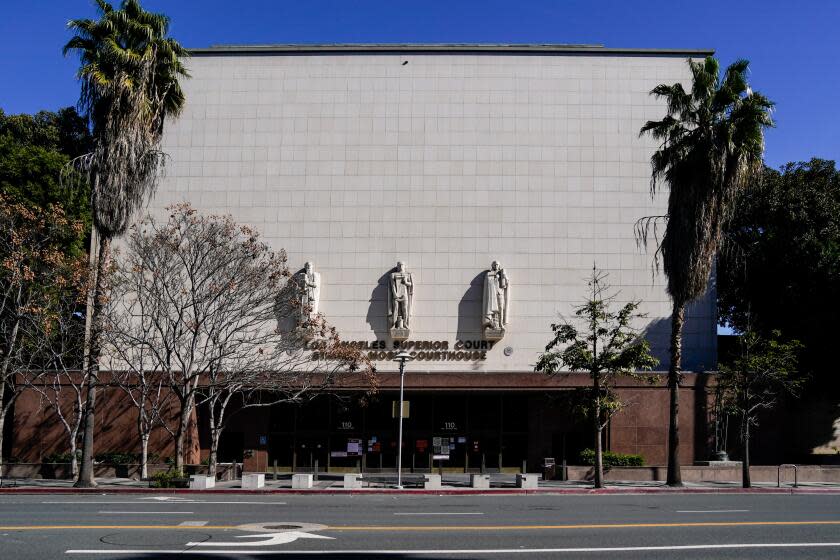Letters to the Editor: There's a court reporter shortage. Switch to recordings, says a lawyer

To the editor: I worked in Los Angeles as an attorney for 30 years, mostly downtown in the Stanley Mosk Courthouse. Sometime during that period, that court decided to use tape recorders instead of court reporters at hearings. ("No transcript, no appeal: California courts face 'crisis' over lack of records," April 12)
Visualizing blank or garbled recordings being the only evidence of what transpired at a hearing, I was nervous. I forget for how long the hearings were taped, but it was soon abandoned at the strenuous demand of court reporters.
As it turned out, the tape recordings were wonderful. They were available shortly after hearings for a modest fee, and the recordings I got were always clear and accurate.
On the other hand, getting a transcript from a court reporter in a timely manner often took cajoling. And, I am here to say court reporters do make mistakes.
Now, there's a shortage of court reporters. It is hard to believe that we have not yet abandoned them as anachronisms; they must have a great lobby.
Court reporters are expensive; they cost clients hundreds of dollars per hearing and also attorneys who try to induce them to produce a timely transcript.
Technology is no doubt better now, but the tape recordings we had then were fine. It is obvious court reporters should go.
Lore Spangler, Los Angeles
..
To the editor: We need to train many of the people likely to be fired from their $20-per-hour fast-food jobs in California as court reporters. They'd have stable hours with good pay and benefits.
Community colleges are perfect for this type of certificate program. They could provide all the needed classes plus tutoring and remedial work.
Certainly many of these fast-food workers could make the change with some social support. In exchange for the benefits that would come with their training, they could pledge to work for the courts for a specified number of years.
Suzanne Brugman, La Habra Heights
This story originally appeared in Los Angeles Times.

